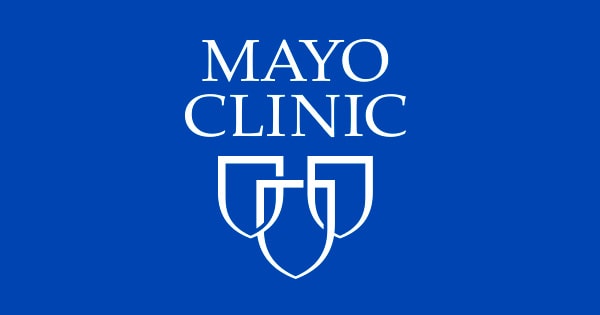COVID-19: Who’s at higher risk of serious symptoms?

Advanced age and some health conditions can raise the risk of serious COVID-19 (coronavirus disease 2019) illness.
Many people with COVID-19, also called coronavirus disease 2019, recover at home. But for some, COVID-19 can be a serious illness. Some people may need care in the hospital, treatment in the intensive care unit and the need for breathing help. In some people, severe COVID-19 illness can lead to death.
Not every risk factor for serious COVID-19 illness is known. But some risks stand out thanks to research gathered since the start of the pandemic.
What raises the risk of severe or critical COVID-19 illness?
The risk for serious COVID-19 illness depends on your health status, age and activities. Your risk also depends on other factors. This includes where you live, work or learn, how easy it is for you to get medical care, and your economic stability.
If you have more than one risk factor, your risk goes up with each one.
Age raises the risk of serious COVID-19
People age 65 and older and babies younger than 6 months have a higher than average risk of serious COVID-19 illness. Those age groups have the highest risk of needing hospital care for COVID-19.
Babies younger than 6 months aren’t eligible for the COVID-19 vaccine, which adds to their risk. For older people, the challenge is that the immune system is less able to clear out germs as people age. Also, as people age, medical conditions that raise the risk of severe COVID-19 are more likely. In the U.S. as of March 2024, about 76% of all deaths from COVID-19 have been among people age 65 and older.
Aging plus disease raises the risk of serious COVID-19
Severe COVID-19 disease is more likely for people who have other health issues.
Some common diseases linked to aging are:
- Heart disease. Examples are heart failure or coronary artery disease.
- Diabetes mellitus. The risk is higher for both type 1 and type 2.
- Chronic lung diseases. This includes airway disease and conditions that damage lung tissue.
- Obesity. The risk goes up as body mass index (BMI) increases, with the highest risk for a BMI of 40 or greater.
- Chronic kidney disease. Especially if you are on dialysis.
These diseases become more common as people age. But they can affect people of any age. The risk of serious COVID-19 illness is linked to having one or more underlying medical condition.
Asthma, COPD, other lung diseases raise risk of severe COVID-19
Your risk of having more severe COVID-19 illness is higher if you have lung disease. Having moderate to severe asthma raises some risks of serious COVID-19 illness. It raises the risk of needing care in the hospital, including intensive care, and needing mechanical help breathing.
The risk of serious COVID-19 illness also is higher for people who have conditions that damage lung tissue over time. Examples are tuberculosis, cystic fibrosis, interstitial lung disease, bronchiectasis or COPD, which stands for chronic obstructive pulmonary disease. These diseases raise the risk of needing care in the hospital for COVID-19. Depending on the condition, the risk of needing intensive care and the risk of death from COVID-19 also may go up.
Other lung conditions, such as a history of pulmonary hypertension or pulmonary embolism affect a person’s risk of serious illness after COVID-19. The risk of death may be higher after these conditions.
Cancer raises the risk of severe COVID-19
In general, people with cancer have a greater risk of getting serious COVID-19. People who have or had blood cancer may have a higher risk of being sick for longer, or getting sicker, with COVID-19 than people with solid tumors.
Having cancer raises the risk of needing care in the hospital, intensive care and the use of breathing support. Having blood cancer and getting COVID-19 raises the risk of death from the illness.
Treatment for blood cancer may raise the risk of severe COVID-19 but the research is still unclear. Cancer treatment may also affect your COVID-19 vaccine. Talk to your healthcare professional about additional shots and getting vaccinated after treatments that affect some immune cells.
Other conditions that raise the risk of severe COVID-19
If an organ or body system is already weakened by disease, infection with the COVID-19 virus can cause further damage. In other cases, medicine for the original condition can lower the immune system’s response to the virus that causes COVID-19.
Many different diseases can raise the risk of severe COVID-19 illness.
- Brain and nervous system diseases, such as strokes.
- Chronic liver disease, specifically cirrhosis, nonalcoholic fatty liver disease, alcoholic liver disease and autoimmune hepatitis.
- HIV not well managed with medicine.
- Heart disease, including congenital heart disease and cardiomyopathies.
- Mood disorders or schizophrenia.
- Dementia.
- Having received an organ or stem cell transplant.
- Sickle cell anemia and thalassemia blood disorders.
Other risk factors for severe COVID-19 are:
- Not getting enough physical activity.
- Smoking.
- Pregnancy or having recently given birth.
- Use of medicines that lower the immune system’s ability to respond to germs.
Also, as a general group, disability is linked to an increased risk of severe COVID-19. The risks are different depending on the disability.
- Down syndrome is linked to a higher risk of needing care in the hospital. The risk of death from severe COVID-19 also is higher than typical for people with Down syndrome.
- Attention deficit/hyperactivity disorder is linked to an increased risk of needing care in the hospital from severe COVID-19.
- Cerebral palsy is linked to an increased risk of needing care in the hospital from severe COVID-19.
These are not the only conditions that increase the risk of severe COVID-19. Talk to your healthcare professional if you have questions about your health and risk for getting a serious COVID-19 illness.
A COVID-19 vaccine can lower your risk of serious illness
The COVID-19 vaccine can lower the risk of death or serious illness caused by COVID-19. It lowers your risk and the risk that you may spread it to people around you. Your healthcare team may suggest added doses of COVID-19 vaccine if you have a moderately or seriously weakened immune system.
How else can you lower the risk of severe COVID-19?
Everyone can lower the risk of serious COVID-19 illness by working to prevent infection with the virus that causes COVID-19.
- Avoid close contact with anyone who is sick or has symptoms, if possible.
- Use fans, open windows or doors, and use filters to move the air and keep any germs from lingering.
- Wash your hands well and often with soap and water for at least 20 seconds. Or use an alcohol-based hand sanitizer with at least 60% alcohol.
- Cough or sneeze into a tissue or your elbow. Then wash your hands.
- Clean and disinfect high-touch surfaces. For example, clean doorknobs, light switches, electronics and counters regularly.
- Spread out in crowded public areas, especially in places with poor airflow. This is important if you have a higher risk of serious illness.
- The U.S. Centers for Disease Control and Prevention recommends that people wear a mask in indoor public spaces if COVID-19 is spreading. This means if you’re in an area with a high number of people with COVID-19 in the hospital. They suggest wearing the most protective mask possible that you’ll wear regularly, that fits well and is comfortable.
These basic actions are even more important for people who have weakened immune systems, and their caregivers.
The FDA also has authorized the monoclonal antibody pemivibart (Pemgarda) to prevent COVID-19 in some people with weakened immune systems.
People can take other actions based on their risk factors.
- If you’re at a higher risk of serious illness, talk to your healthcare professional about how best to protect yourself. Know what to do if you get sick so you can quickly start treatment.
- Lower your risk of COVID-19 complications by making sure that any health issues are well managed. This includes staying on track with managing medical conditions, going to all healthcare appointments and planning ahead to avoid running out of medicine. Keep taking medicines as suggested by your healthcare professional.
- Stay up to date on vaccines. This includes vaccines for flu, pneumonia and RSV. These vaccines won’t prevent COVID-19. But becoming ill with a respiratory illness may worsen your outcome if you also catch COVID-19.
You may consider making a care plan. In the care plan, write your medical conditions, the medicine you take, and any special food or diet needs you have. The care plan also includes who you see for care and your emergency contacts.
From Mayo Clinic to your inbox
Sign up for free and stay up to date on research advancements, health tips, current health topics, and expertise on managing health. Click here for an email preview.
To provide you with the most relevant and helpful information, and understand which
information is beneficial, we may combine your email and website usage information with
other information we have about you. If you are a Mayo Clinic patient, this could
include protected health information. If we combine this information with your protected
health information, we will treat all of that information as protected health
information and will only use or disclose that information as set forth in our notice of
privacy practices. You may opt-out of email communications at any time by clicking on
the unsubscribe link in the e-mail.
April 13, 2024
- Goldman L, et al., eds. COVID-19: Epidemiology, clinical manifestations, diagnosis, community prevention, and prognosis. In: Goldman-Cecil Medicine. 27th ed. Elsevier; 2024. https://www.clinicalkey.com. Accessed April 5, 2024.
- Regan JJ, et al. Use of Updated COVID-19 Vaccines 2023-2024 Formula for Persons Aged ≥6 Months: Recommendations of the Advisory Committee on Immunization Practices—United States, September 2023. MMWR. Morbidity and Mortality Weekly Report 2023; doi:10.15585/mmwr.mm7242e1.
- Underlying medical conditions associated with higher risk for severe COVID-19: Information for healthcare providers. Centers for Disease Control and Prevention. https://www.cdc.gov/coronavirus/2019-ncov/hcp/clinical-care/underlyingconditions.html. Accessed April 2, 2024.
- Stay up to date with COVID-19 vaccines. Centers for Disease Control and Prevention. www.cdc.gov/coronavirus/2019-ncov/vaccines/stay-up-to-date.html. Accessed April 2, 2024.
- COVID data tracker. Centers for Disease Control and Prevention. https://covid.cdc.gov/covid-data-tracker/#demographics. Accessed April 2, 2024.
- Najafabadi BT, et al. Obesity as an independent risk factor for COVID‐19 severity and mortality. Cochrane Database of Systematic Reviews. 2023; doi:10.1002/14651858.CD015201.
- People with certain medical conditions. Centers for Disease Control and Prevention. https://www.cdc.gov/coronavirus/2019-ncov/need-extra-precautions/people-with-medical-conditions.html. Accessed April 2, 2024.
- AskMayoExpert. COVID-19: Outpatient management (adult). Mayo Clinic; 2023.
- Emergency use authorizations for drugs and non-vaccine biological products. U.S. Food and Drug Association. https://www.fda.gov/drugs/emergency-preparedness-drugs/emergency-use-authorizations-drugs-and-non-vaccine-biological-products. Accessed April 2, 2024.
- How to protect yourself and others. Centers for Disease Control and Prevention. https://www.cdc.gov/coronavirus/2019-ncov/prevent-getting-sick/prevention.html. Accessed April 2, 2024.
- COVID-19: What people with cancer should know. National Cancer Institute. https://www.cancer.gov/about-cancer/coronavirus/coronavirus-cancer-patient-information. Accessed April 2, 2024.
- Hygiene and respiratory viruses prevention. Centers for Disease Control and Prevention. https://www.cdc.gov/respiratory-viruses/prevention/hygiene.html. Accessed April 2, 2024.
- Preventing respiratory viruses. Centers for Disease Control and Prevention. https://www.cdc.gov/respiratory-viruses/prevention/index.html. Accessed April 2, 2024.
- Maintaining a care plan. Centers for Disease Control and Prevention. https://www.cdc.gov/aging/publications/features/caregivers-month.html. Accessed April 2, 2024.
- COVID-19: What People with Cancer Should Know. National Cancer Institute. https://www.cancer.gov/about-cancer/coronavirus/coronavirus-cancer-patient-information. Accessed April 11, 2024.
See also
.



